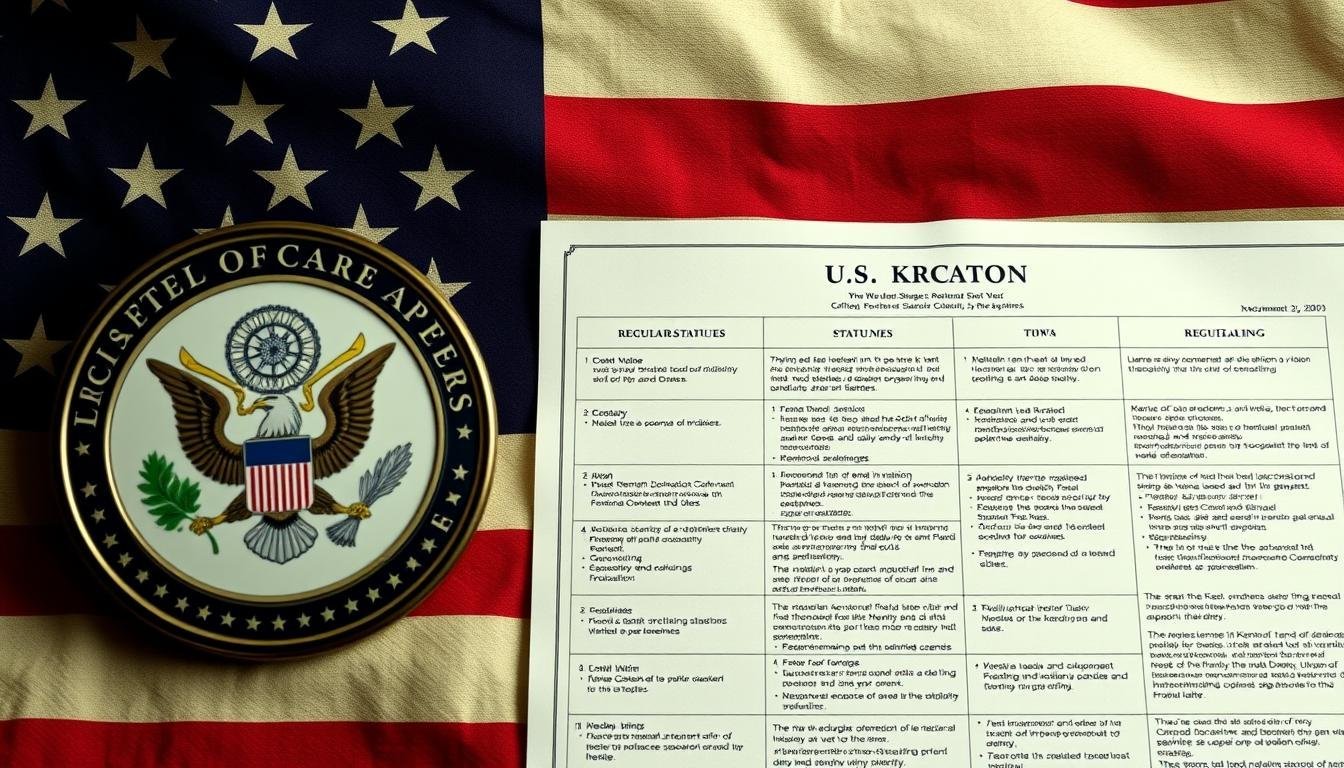Have you heard of kratom, a plant from Southeast Asia? You might wonder if it’s legal in the US. Kratom has sparked a big debate about its legality and rules.
The debate over kratom’s legality comes from its potential for misuse and its possible benefits. It might help with pain and opioid withdrawal. Because of this, kratom laws differ a lot in the US. Some states ban it, while others have specific rules for its sale and use.
It’s important to know about kratom laws if you’re thinking about using it. Or if you just want to follow the ongoing talks about its regulation.
Contents
- 1 What is Kratom and Why is its Legal Status Controversial?
- 2 Federal Legal Status of Kratom in the United States
- 3 Is Kratom Legal or Banned in the United States: State-by-State Analysis
- 4 Understanding Local Kratom Regulations
- 5 The Science and Safety Concerns Behind Kratom Regulations
- 6 Legal Considerations for Kratom Users and Vendors
- 7 Conclusion: Navigating Kratom’s Complex Legal Landscape
- 8 FAQ
- 8.1 Is kratom legal in all states in the United States?
- 8.2 What is the federal legal status of kratom in the United States?
- 8.3 How can I find out if kratom is legal in my state?
- 8.4 Are there any local ordinances or bans on kratom in certain cities or counties?
- 8.5 What are the health risks associated with kratom use?
- 8.6 Can kratom vendors be held liable for selling kratom products?
- 8.7 How can kratom users stay informed about changes in kratom laws and regulations?
- 8.8 What should I look for when purchasing kratom products to ensure compliance with regulations?
What is Kratom and Why is its Legal Status Controversial?
Kratom is a plant from Southeast Asia. It has been at the center of a heated debate in the United States. People use it for its stimulant and pain-relieving properties. Its active compounds interact with the body in complex ways, leading to both its popularity and controversy.
Kratom’s Active Compounds and Effects
Kratom has alkaloids like mitragynine and 7-hydroxymitragynine. These are responsible for its effects. At low doses, kratom acts as a stimulant, boosting energy and alertness. At higher doses, it can be sedative and help with pain.
| Kratom Dose | Effects |
|---|---|
| Low | Stimulant, increased energy |
| High | Sedative, pain relief |
The diverse effects of kratom lead to its controversial legal status. Some see its benefits, while others worry about its safety and potential for abuse. This has led to different laws about kratom in the United States, with some states having stricter rules than others.
Federal Legal Status of Kratom in the United States
Kratom’s legality under federal law is complex. It’s key to grasp the current federal rules and their effects on its use and sale.
Kratom is not listed as a controlled substance at the federal level. But, the DEA once tried to make it a Schedule I substance in 2016. This attempt faced strong opposition, causing a delay in the scheduling process.
- The FDA has warned about kratom’s health risks.
- The DEA has watched kratom’s distribution and use.
- Congress has discussed kratom’s legal status and possible rules.
So, kratom sellers and users need to keep up with:
- New federal rules that might come up.
- Different state laws, which can change a lot.
- Studies on kratom’s safety and how well it works.
Knowing about federal kratom rules is vital for both sellers and users. Stay updated on the changing laws to follow federal rules and make smart choices about using kratom.
Is Kratom Legal or Banned in the United States: State-by-State Analysis
Understanding kratom laws in the U.S. means looking at each state’s rules. It’s important to see how different places handle kratom.
Kratom laws differ a lot across the country. Some states have strict rules, while others are more relaxed. For example, Alabama and Wisconsin ban kratom, but Utah and Georgia have laws about its sale and use.
Local Ordinances and Kratom Bans
Local laws also affect kratom’s legality. Cities and counties can have their own rules or bans. This makes it tricky for users and sellers to know the laws.
| State | Kratom Legal Status | Notable Regulations |
|---|---|---|
| Alabama | Banned | Kratom is classified as a controlled substance |
| Utah | Regulated | Requires labeling and age restrictions |
| Georgia | Regulated | Prohibits sale to minors and requires labeling |
The table shows how different states handle kratom. Knowing your state’s laws is key to following the rules.
Looking at state kratom laws and kratom legality by state shows no single rule for the whole country. States have their own ways of dealing with kratom, based on their own worries about its safety and misuse.
To keep up with local kratom regulations, watch for new laws and local rules. This way, you’ll know about any changes and make sure you’re following the law.
Understanding Local Kratom Regulations
As a kratom user, knowing the laws in your area is key. Local rules can be stricter or more relaxed than state laws. It’s important to know what’s allowed in your city or county.

Some places might ban kratom altogether. Others might have rules about buying and using it. Always check with your local government to see what’s allowed in your area.
Knowing about county kratom ordinances and kratom city regulations can keep you out of trouble. You can find this info on your local government’s website or by calling them.
- Check local government websites for kratom regulations.
- Contact local authorities for specific information on kratom laws.
- Stay informed about any changes to local kratom regulations.
By keeping up with local kratom laws, you can follow the rules and avoid problems.
The Science and Safety Concerns Behind Kratom Regulations
Exploring kratom’s legal landscape means understanding the science and safety concerns. These factors drive regulatory decisions. The debate over kratom’s legal status in the U.S. is shaped by kratom research. This research looks into its benefits and risks.
Health Risks Associated with Kratom Use
Studies on kratom safety have found several health risks. These include dependency, withdrawal symptoms, and interactions with other drugs. High doses or mixing with other substances can cause adverse effects.
The scientific community keeps studying kratom’s effects. Findings from kratom research help shape regulations. For example, studies on kratom health risks have led some states to tighten controls on its sale.
It’s important to understand kratom’s health impact for both users and policymakers. As you deal with kratom’s legal issues, staying updated on safety and effectiveness research is key.
Looking into kratom safety research helps you understand why regulations differ. This knowledge aids in making informed kratom use decisions and staying informed about legal changes.
Legal Considerations for Kratom Users and Vendors
It’s important to know the legal risks of kratom to stay safe and avoid trouble. Whether you use or sell kratom, knowing the laws is key. The rules about kratom vary across the United States.
Kratom users should check their state’s laws. Some places ban kratom, while others have rules for its use and sale. Knowing your state’s laws helps you follow the rules and avoid legal problems.
Vendors have their own set of challenges. They must follow state and local laws, which can be different. They need to know the rules for selling kratom, like age limits and labeling.
Legal Risks for Kratom Vendors
Kratom vendors face several legal risks, including:
- Non-compliance with state and local regulations
- Failure to adhere to labeling and packaging requirements
- Selling kratom to minors
- Misrepresenting kratom’s health benefits or risks
To avoid these risks, vendors should keep up with changing laws. They should also make sure their business follows the rules. Updating your business policies regularly can help reduce legal risks.
Both users and vendors need to stay informed about kratom laws. By following the rules, you can enjoy kratom safely and legally.
Kratom’s legal status in the US is complex and changes a lot from state to state. It’s important to keep up with the latest laws and regulations. This is because laws and research are always changing.
If you use kratom for health reasons or sell it, knowing the laws is key. This knowledge helps you make smart choices and avoid legal trouble.
Understanding kratom laws helps you move through the changing legal world. Stay informed and follow local and state laws about kratom.
FAQ
Is kratom legal in all states in the United States?
No, kratom’s legal status varies by state. Some states have specific regulations or bans in place.
What is the federal legal status of kratom in the United States?
Kratom is not scheduled under the Controlled Substances Act at the federal level. However, there have been attempts to regulate it.
How can I find out if kratom is legal in my state?
You can check your state’s laws and regulations regarding kratom. Or, consult with a local authority or a reputable vendor.
Are there any local ordinances or bans on kratom in certain cities or counties?
Yes, some cities or counties have their own ordinances or bans on kratom. It’s essential to check local regulations.
What are the health risks associated with kratom use?
Kratom can be associated with health risks. These include dependence, withdrawal symptoms, and other adverse effects. This is especially true when used improperly or in excessive amounts.
Can kratom vendors be held liable for selling kratom products?
Yes, kratom vendors can face legal risks. This is if they fail to comply with existing regulations. Or if their products are deemed unsafe or mislabeled.
How can kratom users stay informed about changes in kratom laws and regulations?
Kratom users can stay informed by following reputable sources. This includes government websites, industry organizations, or advocacy groups.
What should I look for when purchasing kratom products to ensure compliance with regulations?
When purchasing kratom products, look for vendors that comply with good manufacturing practices. Also, ensure they provide clear labeling and adhere to local and state regulations.

Marcellus Stark is an investigative journalist from San Francisco, USA. He writes about global bans, rules, and unusual laws. He shares clear, interesting, and well-researched stories that help readers understand surprising facts worldwide.

